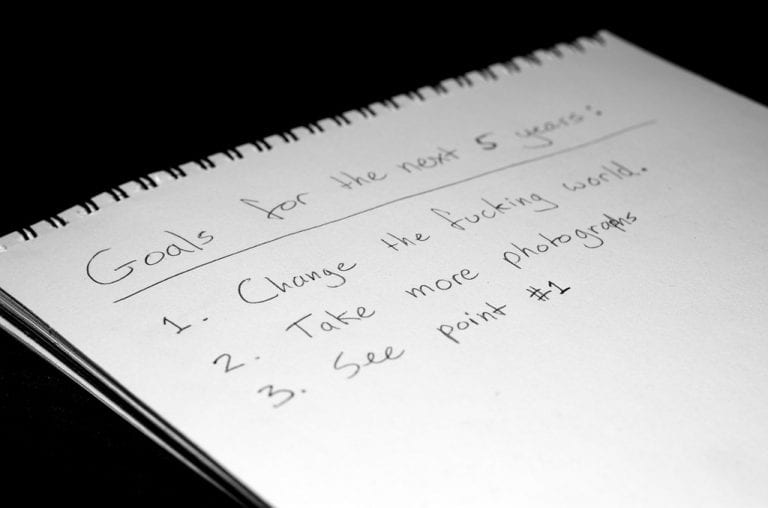After years of unsuccessful attempts at dating, you’ve finally isolated your problem: unavailable men. If only you could find a guy who wasn’t a total commitmentphobe, you’d be in the relationship you’ve always desired. So the solution then, is simple: stop dating unavailable men.
Or maybe it’s not that easy. Perhaps you’ve heard the theory tossed around that if you’re attracted to unavailable people, that’s a sign that you’re unavailable, too. But surely this can’t apply to you. After all, you want to be a relationship. You’re not the one who’s afraid of making more than one plan a week with your significant other or declaring your relationship status via Facebook—it’s the guys you date who can’t even commit to texting with consistency.
But there’s actually something to this theory. The common denominator of all those guys who wouldn’t introduce you as their girlfriend, didn’t want you to meet their families, and couldn’t sleep over at your place without breaking into hives is YOU. Whether you like it or not, the people you’re attracted to can give you insight into where you really are (as opposed to where you think you are or where you want to be) on the emotional availability continuum.
There’s no way around it—the only way to stop being attracted to unavailable men is to work on becoming more available yourself. And the only way to start becoming more available is to recognize if you’re not. Click through for some telltale signs that might help you out.
Contents
You’re repulsed by available guys

“Not interested” doesn’t even begin to describe how you feel about that amazing guy who is so into you. When he asks you out on actual dates (and doesn’t just relegate you to last-minute dive bar drinks or late-night booty calls), treats you well, and genuinely wants to get to know you, you start making excuses about why you’re not into him.
When in his presence, you have an overwhelming desire to flee, change your phone number, and take on an assumed identity. If you have this strong of a negative reaction to a guy who likes you and shows up, chances are you don’t like yourself very much. What’s underneath this aversion is often a subconscious belief that if they like you so much, there must be something wrong with them. The skittishness you experience, which can be accompanied by thoughts that these guys are pathetic, desperate losers, is a self-protective mechanism. Believing on a deep level that there is something inherently wrong with you and you’re unworthy of love, anyone who wants to get close poses a threat, because then they will be able to see what you perceive as the secret truth about yourself.
However, this truth is a lie. There’s nothing wrong with you that makes you unlovable, and as you work on loving and accepting yourself, those available men will become less and less repulsive … and maybe one day even be attractive.
You’re in love with a fantasy

You want a boyfriend. You have all these ideas about who he’s going to be, what he’s going to act like, and what it’s going to be like to date him. Then this normal guy appears in your life and wants to be your boyfriend. He doesn’t look how you’d like him to look, isn’t the age you thought he’d be, and doesn’t live in the neighborhood you imagined he would or have the job you wanted him to have. If you say yes to this guy, this real person in front of you, you’ll have to relinquish all your expectations and fantasies.
It’s very painful to give up ideas you’ve been harboring for a long time and can feel like a big loss. If you aren’t aware that you’re being driven by fantasies, you could be tempted to reject this guy so you can hold on to that dream of who you’re supposed to wind up with. If you have awareness about what’s going on in your mind, you’ll be able to grieve the loss of your expectations and still move forward with getting to know someone who doesn’t exactly fit your ideal.
A fantasy guy and imagined relationship might be perfect, but they’ll never be able to offer you love and companionship, and clinging to them will only keep you from falling in love with an imperfect—but real—person.
You crave chaos

Maybe your apartment is overflowing with clutter, or your bank account balance is at zero, or you’re enmeshed in some family drama. Whatever it is, you’re always on the brink of disaster and crisis is your constant companion. Your perpetual whirlwind of chaos may be entertaining to others, but it’s ultimately destructive to yourself and could be preventing you from having a stable relationship.
First of all, living in all that chaos takes up a lot of energy and results in extreme self-centeredness, which doesn’t leave you with much to devote to another person. Secondly, being so attached to your “everything-is-falling-apart” identity leads to agitation when there’s no crisis in sight. Therefore, a drama-free relationship seems like the worst fate imaginable—a life sentence to boredom and suffocation.
Be mindful of chaos that pops up and try to keep it in check. That way, you can practice feeling more comfortable in the absence of turmoil. Getting out of this self-centered, catastrophe cycle will give you the presence and peace of mind to be available for a healthy (and calm!) relationship.
You compartmentalize

When you were in junior high, you had separate birthday parties for your camp friends and your school friends. You act one like one person at work and an entirely different one with your running club. You carefully gauge what you tell to your family, friends, and coworkers, sharing different information with different groups. Constantly trying to manage how others see you and control what they think of you, it’s hard for you to let down your guard. If you stopped compartmentalizing, you’re not sure you’d even know who the real you is, and you doubt that you would be accepted by everyone in your life just as you are.
To be truly available for a relationship, you have to be willing to let go of managing your image, hiding aspects of yourself, and working so hard to keep all the different parts of your life separate; you need to drop the control by showing another person all sides of yourself and fully inviting them into your life.
You cut and run

Your patterns of unavailability don’t just appear in romantic relationships—they make their way into your friendships, too. When you meet a new friend you have a lot in common with, you’re so excited about finding someone who “gets” you that you become insta-BFFs. Everything goes smoothly in the honeymoon phase when you can be cheerful and fun, but as soon as conflict arises, things start to get rocky. The thought of expressing that you disagree with your new BFF, showing that you’re upset by something they did or said, standing up for yourself, or setting a boundary that’s needed strikes such fear in your heart that you’d rather do anything else than what is required to stay in relationship to this person and maintain a friendship. So instead, you opt to cut and run, dropping the friend cold. When they ask you to get together, you tell them that you’re just “really busy right now” or “going through a lot,” and stop returning voicemails, emails, and texts.
Since you’re friendly and outgoing, you know you’ll make a new BFF soon and it’s just easier this way. But it’s at the expense of cultivating long-lasting friendships that deepen over time, in which you can learn how to express yourself when you’re upset or disappointed—just like you’ll have to do in a romantic relationship.
You’re afraid to commit to plans, jobs, and goals

Beyond relationships or friendship, commitmentphobia can extend into any area of your life. When, on Monday morning, a friend asks you to see a movie that Saturday night, you feel a surge of panic. What if something better comes up?you think, not wanting to limit your options. You might be stuck in a dead-end job and routinely peruse job postings, but find that you’re unable to apply for fear that you’ll get trapped in a position you hate. Or you have five goals but don’t want to take action on any of them in case they’re not the right ones or because you’re afraid of failing. You even find it difficult to decide on what to order in restaurants and are often plagued with buyer’s remorse, wishing you’d ordered what your friend did instead.
Any commitment made represents a door closed on all the other options. And what if you make the wrong choice? But the fear of picking the wrong plan, job, goal—or person—only results in complete stagnation. Keeping your options open may seem enticing, but what it really means is that at the end of the day, you’ll wind up with no options at all.
You’re very busy

Not just normal busy. When people ask you how you’re doing you’re quick to respond, “I’m sooo busy!” wearing your busyness like a badge of honor. You work at a demanding job, juggle several side projects, wake up at 6am to work out, participate in a book club, volunteer, take classes, and attend networking events and wine tasting Meetups on the regular. But even without long hours at work or a plethora of organized activities, you can still find things to keep you very busy—doing errands, cleaning and decluttering, and obsessively checking email, Facebook, and Twitter to name a few.
Workaholism, compulsive busyness, and addiction to tasks and “To Do” lists are seemingly harmless ways to check-out. But they are more destructive than they appear, preventing you from being present and available to yourself, let alone to someone else. To increase your availability, leave a little room in your jam-packed schedule—it will give you the time to sit still and check-in with yourself, and the space to open up to another person.
Original by Julie Gerstein
